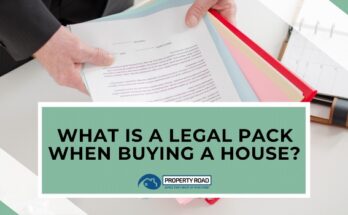Property development can be a lucrative business. But it needs to be funded, which means you need to find the right type of finance. There are different sources of finance for property development available, but not all will work for every project.
Along with high street offerings, the alternative lending market can appear to be complicated and very large.
This article will highlight what types of finance are available, though a lot depends on your circumstances and the investment project you have in mind.
The various sources of finance for property development available

Depending on the project, the sources of housing finance will vary with most projects being covered by either commercial mortgages or bridging finance.
However, it may also be possible to access funding from government or local authorities, depending on the type of housing that you are looking to finance, particularly if it’s aimed at social housing.
There are also investors looking for housing schemes and projects to finance with a view to taking an equity stake for funding a project and we will cover this more in property crowdfunding below.
There are lenders willing to offer money to develop a house for up to two years to cover building and refurbishment costs.
There are a range of finance options with some lenders offering the opportunity to convert the original loan into a mortgage once the project is complete.
This is the case for the properties that will not attract a mortgage or need renovating before a mortgage lender will offer a loan.
But there are other options too, and we will discuss them all in detail.
Commercial mortgages
You can use a commercial mortgage to buy commercial property such as warehouses, offices and shops. Essentially, anything that isn’t a private residential.
A commercial mortgage works along the same lines as a private mortgage does, so you can spread the cost of the purchase over the years you want the mortgage for.
We found that commercial mortgages can work well, but if the property is up for auction, the timeframes involved mean you’ll at least need a bridging loan to cover the gap between winning an auction and getting the mortgage funds in place.
Buy to let mortgages

For a landlord wanting to invest in a rental property, or indeed more than one, then you can access a buy to let mortgage. There are tougher criteria now when applying and lenders will look closely at the viability of the building for rent.
Some lenders will also offer one mortgage on a property portfolio, which will reduce arrangement fees, and you only have to deal with one lender.
Landlords with a portfolio can also utilise the equity in their properties to access funding more easily so they can buy more buy to let properties or to refurbish the ones they have.
Just as we mentioned with commercial mortgages, in our experience, buy to let mortgages work well for properties on the open market, but not so well for auction ones.
Whenever we found a buy to let opportunity at an auction, we had to secure our initial finance outside of the mortgage provider, even if we would then move it to a mortgage later.
Bridging finance
Bridging loans are a type of ‘alternative finance’ and are growing in popularity because they are easier to access than a mortgage from a high street lender though they tend to be for one or two years.
A bridging loan can be used for just about any purpose, but you will need a security property to access them. The money can be used for buying or developing a house or flat that may not otherwise attract a mortgage.
Bridging finance tends to be more expensive because they are quick to access – usually in less than two weeks though some lenders can deliver the money in a few days which makes them attractive for those who want to buy at auction and have the loan in place to meet the auctioneer’s deadline.
Essentially, those are the basic ways for financing property development, so you either have the cash to invest or to carry out any work, or you will need to borrow the money from a high street lender or opt for bridging finance.
When we were starting out in property investment, bridging finance was our main source of funds as we were looking for low-priced auction lots. We met with a specialist bridging finance broker who was able to analyse our situation and recommend the best route forward.
We left his office with a firm idea of how much we could spend on the first property, and how long we would have to repay the funds.
This then allowed us to go off and research the availability and timeframes for getting a mortgage, though many mortgage providers won’t lend until major work on the building is complete.
With that in mind, we often found the time it would take to secure the property, complete the work, and secure the mortgage, would significantly eat into our potential profit. That made the first few investments very difficult.
However, once you get the first few done and have money in the bank, it starts to get easier (and cheaper!).
Property Development Loans

There are also specific property development loans that provide short-term financing to buy and develop a property. There are three types of projects these loans can be used for:
- Property renovation – buying a property and renovating it
- New builds – buying land to build a new property
- Pull down and rebuild – buying a building to tear it down and build a new on in its place
These kinds of loans can come with restrictions and you might have to meet in advance agreed schedules. Often you get the funding in instalments, depending on having completed the relevant stage, like building the foundations.
An inspection might also be necessary to prove to the lender that you completed the agreed task in accordance with regulations and permissions.
This can be quite a complicated process, so being an experienced property developer will help you to meet the agreed targets and make the project run smoothly.
Because of the complexities involved in such projects, many high street lenders aren’t keen to lend for them. So you might have to go to a specialist lender, which often comes with hither rates.
We would recommend consulting a mortgage broker specialising in these kind of loans to find one that will work for you.
Government grants and loans
For certain types of projects, you might be able to get support from the government. These will be linked to certain conditions, such as building social housing.
The Levelling Up Home Building Fund is such one finance option by the government. It’s aimed at small to medium-sized property developers, who build properties for sale or rent in the UK.
Whether your project is eligible for such a government loan will depend on meeting the criteria set out in relevant fund. But it’s worth looking at those as well.
All of these sources of finance for property development we have mentioned so far involve lending money. This means you need to have securities you can lend against or have a willing guarantor and a good credit rating.
But what if a loan is just not an option for you?
Starting property development with no money or access to conventional finance options

For many potential property investors and developers, their ‘million-dollar question’ is: “How to start property development with no money?”
In an ideal world, we would all be accessing this type of finance deal, but this opportunity will not fall into your lap, so you could:
- Save extensively – reduce your day-to-day expenditure so you quickly build-up savings
- Ask family and friends to help you invest in a property development
- If you own a home, borrow against the equity
- Access a 100% mortgage
- Property crowdfunding
We were lucky enough to have a small amount of money we could put towards our first investment, but it still made it difficult to get started. So, make no mistakes about it, while investing in property with no money is possible, it isn’t easy!
Property Crowdfunding
Raising money without using a loan is possible through property crowdfunding, which means raising a large number of small investors to get the funding you need for your project.
The attraction is that you use a property crowdfunding platform with each investor only investing a small proportion of the money you need.
Lots of investors and firms use crowdfunding as a way to fund their property development projects and one of the benefits is that by having lots of investors you reduce your exposure to risk. (As do your investors).
If you are buying a house or flat, you’ll need to calculate the various costs, including legal fees, stamp duty, as well as project management costs for the its development. Remember too that any profits or future rental income will need to be divided between all investors.
We’ve found that crowdfunding is an enjoyable way to invest in property, but we did find it difficult to sell our shares when we wanted to.
On the whole, we’d suggest this type of investment is a decent option as part of a bigger strategy, but we found it difficult to make the kind of significant amounts you can from investing directly in property.
For some, property crowdfunding is an ideal solution to access property investment and development with little financial risk but you will need to convince potential investors that you have a sound investment and you are the person to deliver it successfully.
As mentioned, the sources of finance for property development are varied and there are lots of lenders willing to invest, but a lot depends on how you approach the task, the project you have in mind and the amount you are looking for. Good luck!




